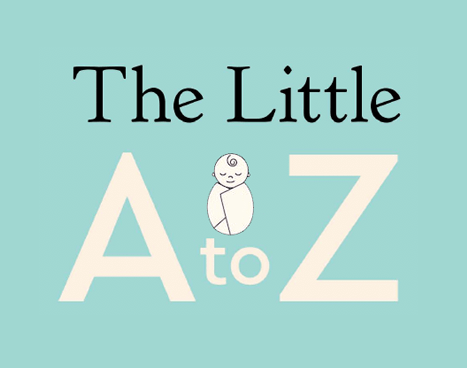Character Matters
What is grit?

Who doesn't recall their first failure and the feelings it conjured up? Mine was an audition for a play at our local playhouse in Calgary. I'll never forget the day I received the call informing me that I had not gotten a part. I was no more than 12. I hung up the phone and sat in my room. My father knocked to ask who has been on the phone and this feeling of shame swept over me. I couldn't tell my father I had failed at something. I panicked and lied..only to tell the truth an hour later.
Probably most ridiculous in this whole memory is that: (a) I hated acting and had only auditioned to keep a good friend company and (b) we are talking about a local playhouse here, not Broadway or the West End. But the idea that I had 'failed', and the disappointment I thought this would produce in my parents, was enough for me to try and hide the audition's outcome.
Looking retrospectively at it all, what if I had desperately wanted to be an actor? Would this first audition experience have shattered my confidence to pursue my dream? Or worse, stunted any further pursuit? Or would I have picked my pride up off my bedroom floor, walked into the kitchen and declared to my parents that I needed acting lessons?
Turns out that how I may have navigated that failure is just as important as the failure itself. More importantly, that the navigation depends heavily on our character. The good news however is that character is nurtured. Meaning we can help our kids to develop the skills necessary to have confidence to keep at pursuits, even in the face of failure. Researchers have come to dub this “grit.”
Let's explore a bit further.
What is grit?
Recently, my eye kept catching the word 'grit' in different magazine articles and blogs on parenting. In my ignorance, I had assumed it was a popularized American term for perseverance and gave little attention to its wider application in modern pedagogy. Only when I came across a research paper from fellow World Bankers did I stop to reassess my interest.
Here colleagues were discussing the results from a randomized trial test introducing 'grit' in middle school curriculum in North Macedonia. I read their paper, and starting digging through the bibliography to read other articles associated with the concept of grit.
Turns out, there are numerous definitions of grit floating out there in academic and parenting circles. I find Angela Duckworth's explanation in her 2013 Ted Talk inspiring as it focuses on long-term commitment to goals which is in essence central to building character:
“Grit is passion and perseverance for very long-term goals. Grit is having stamina. Grit is sticking with your future, day in, day out, not just for the week, not just for the month, but for years, and working really hard to make that future a reality. Grit is living life like it's a marathon, not a sprint.”
As explained in my World Bank colleagues' paper, there are two sides to grit which educators and academics are interested in with: (i) perseverance of effort; and (ii) consistency of effort. The former captures abilities to work towards a goal over long periods of time despite setbacks and challenges whereas the latter has to do with not losing focus or interest on long-term goals. Both attributes, it is thought, are important to helping children succeed both academically and socially.
Perhaps more curious is that researchers are coming to understand what grit is not. It is not talent, IQ, smarts or intellect. As Duckworth points out, “…there are many talented individuals who simply do not follow through on their commitments. In fact….grit is usually unrelated or even inversely related to measures of talent.”
At the heart of research on grit is the question: what ingredients in school are going to help children succeed? As illustrated by Duckworth above, science is starting to reveal that more than intellectual capability, academic (and life) success hinges on building personal qualities (non-cognitive skills) which can help students to remain steadfast in reaching long-term goals. According to Paul Tough in his June 2016 Atlantic article How Kids Learn Resilience, these skills, or character strengths, include: resilience, conscientiousness, optimism, self-control and grit.
Nurturing grit: from home to classroom
According to Paul Tough, over the last few decades the US public school system has become increasing interested in teaching these non-cognitive skills to children, particularly in low-income school settings. Yet despite this consensus, the verdict is still out on the best way to teach non-cognitive skills in school.
In her TED Talk, Duckworth confesses that research is still in its early stages on identifying successful approaches to teaching grit and other non-cognitive skills in schools. Her one example is the 'growth mindset,' the product of a fellow academic, Dr Carol Dweck, at Stanford University. In essence, growth mindset is about teaching students that failure is not a permanent condition.
This is also where the work of my World Bank colleagues becomes relevant. Their experiment was the first to introduce grit nationwide into North Macedonia schools. Results showed positive outcomes in terms of grades for middle-school children who benefited from additional curriculum over a defined period.
Whether it is Tough, Duckworth, Dweck, etc, an important secondary conclusion in their work is that ultimately the home is where these skills should naturally be nurtured. And therefore there is a role quite early on for us as parents to facilitate non-cognitive skills development.
Tough describes it as such:
“Just as early stress sends signals to the nervous system to maintain constant vigilance and prepare for a lifetime of trouble, early warmth and responsiveness send the opposite signals: You're safe; life is going to be fine. Let down your guard; the people around you will protect you and provide for you. Be curious about the world; it's full of fascinating surprises. These messages trigger adaptations in children's brains that allow them to slow down and consider problems and decisions more carefully, to focus their attention for longer periods, and to more willingly trade immediate gratification for promises of long-term benefits.”
Turns out creating a nurturing home full of exploration and (controlled) risk taking supports our children learning in the classroom. It all makes sense from an intuitive perspective: if you haven't been taught to keep at something, to finish something, to not beat yourself up about how good it is versus just getting it done, then your lack of confidence ultimately becomes a stumbling block to your interest in learning.
Again Tough illustrates the knock-on effect convincingly:
“Students don't learn to read on time, because it is harder for them to concentrate on the words on the page. They don't learn the basics of number sense, because they are too distracted by the emotions and anxieties overloading their nervous systems. As academic material becomes more complicated, they fall further behind. The more they fall behind, the worse they feel about themselves and about school. That creates more stress, which tends to feed into behavioral problems, which lead to stigmatization and punishment in the classroom, which keep their stress levels elevated, which makes it still harder to concentrate—and so on, throughout elementary school.”
This is where I've noticed an important element of the Montessori style of teaching. Montessori doesn't praise children for completing tasks. Rather Montessori asks children to talk about their achievement when it is done. The idea is to avoid praise and to focus on acknowledging effort. I found this rather odd when we first put Clyde in his school. His teacher asked us not to say “Good job” but to instead ask, “How did you feel?” The idea being that children taught in the Montessori way develop self-motivation to complete tasks as opposed to seeking praise from outsiders. As we've watched Clyde grow over the last two years, I now appreciate this approach.
Staying focused
I will end with an anecdote. This week at the barn I came in from my ride to find Clyde upset. Apparently he had been given a horse to ride this week and he wasn't doing 'as good' as he normally does on a pony. He was frustrated, saying he didn't want to ride anymore. I got down to his level and said, “You know what Clyde? Today my horse refused 5 jumps. But we figured it out and by the end of the lesson we were jumping everything beautifully. The important thing is that we don't get discouraged but keep at it.”
Another rider turned and said, “That's right. You know I couldn't even get my horse to go outside today he was so scared of the cars parked outside! But we did it and we had a glorious ride in the sunshine.”
I smiled. Clyde looked at the two of us. Something seemed to be moving around in his brain. Small lessons, small encouragement, leading by example. All the bits and pieces of our lives as parents and caregivers. Who knows which piece sticks when but I am confident it all does. Life is about big dreams but it is also about seeing them through.









